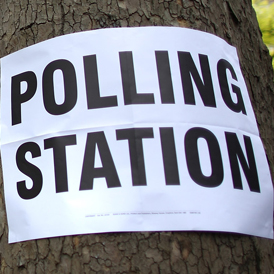Polls close on AV referendum vote and elections
The polls have closed after a bitter AV referendum campaign. Votes have also been cast in elections for the Scottish Parliament, Welsh Assembly, Northern Ireland Assembly and local councils.

The alternative vote (AV) referendum campaign has been filled with controversial claims and counter-claims. The battle to persuade people to vote for, or against, electoral reform has been far from friendly.
Almost a year after David Cameron and Nick Clegg stood shoulder-to-shoulder in the House of Commons Garden, the rivalry between the Prime Minister and his Deputy over AV has been personal.
Latest opinion polls suggest the British public will reject AV for Westminster elections and stick to the current first-past-the-vote system.
‘Dead Clegg bounce’
The bruising battle for votes has threatened to strain relations in the Coalition to breaking point and there are signs that Nick Clegg is being lined up as the scapegoat for the potential failure of the Yes to AV campaign.
In the Commons, Labour MPs mocked the Lib Dem leader, suggesting the Yes campaign had suffered from a “dead Clegg bounce” as a result of his unpopularity.
Some Liberal Democrats are angry at the way the No campaign – which is heavily funded by Conservative backers – personally targeted Mr Clegg for taking what they said were difficult decisions in the interests of the Coalition.
The counting of votes for the AV referendum will not begin until late on Friday afternoon.
Read more: FactCheck - the truth behind the AV claims
Devolved and council elections
In Scotland voters are also returning 129 Members of the Scottish Parliament (MSP).
The Scottish National Party (SNP) is predicted to hold on to power although it is likely to be Friday afternoon before we know who will form a Government in Holyrood.
In Northern Ireland voters have been asked to choose assembly members and councillors. There are two main unionist parties and two nationalist parties – with the cross-community Alliance Party in the middle.
Once all the Members of the Legislative Assembly (MLA) have been elected to Stormont, they must select a coalition government with members from all of the main political parties.
In Wales voters will choose 60 members for the Welsh Assembly Government.
The votes cast in north Wales will start to be counted on Friday morning.
Electoral test
All the major parties in England face their biggest electoral test since the Coalition was formed last year.
The Lib Dems appear to be braced for heavy losses in the devolved elections as well as local council elections across England. Voting in his Sheffield constituency, Mr Clegg appeared to acknowledge that his party looked set to pay a price for supporting unpopular coalition cuts.
“Lots of people have got, obviously, questions and some people have got objections to what the Government is having to do,” he said.
“But I think most people – the vast majority of people – accept that we’re having to do a difficult job in difficult circumstances and that we’re trying do it as fairly and compassionately and responsibly as possible.”